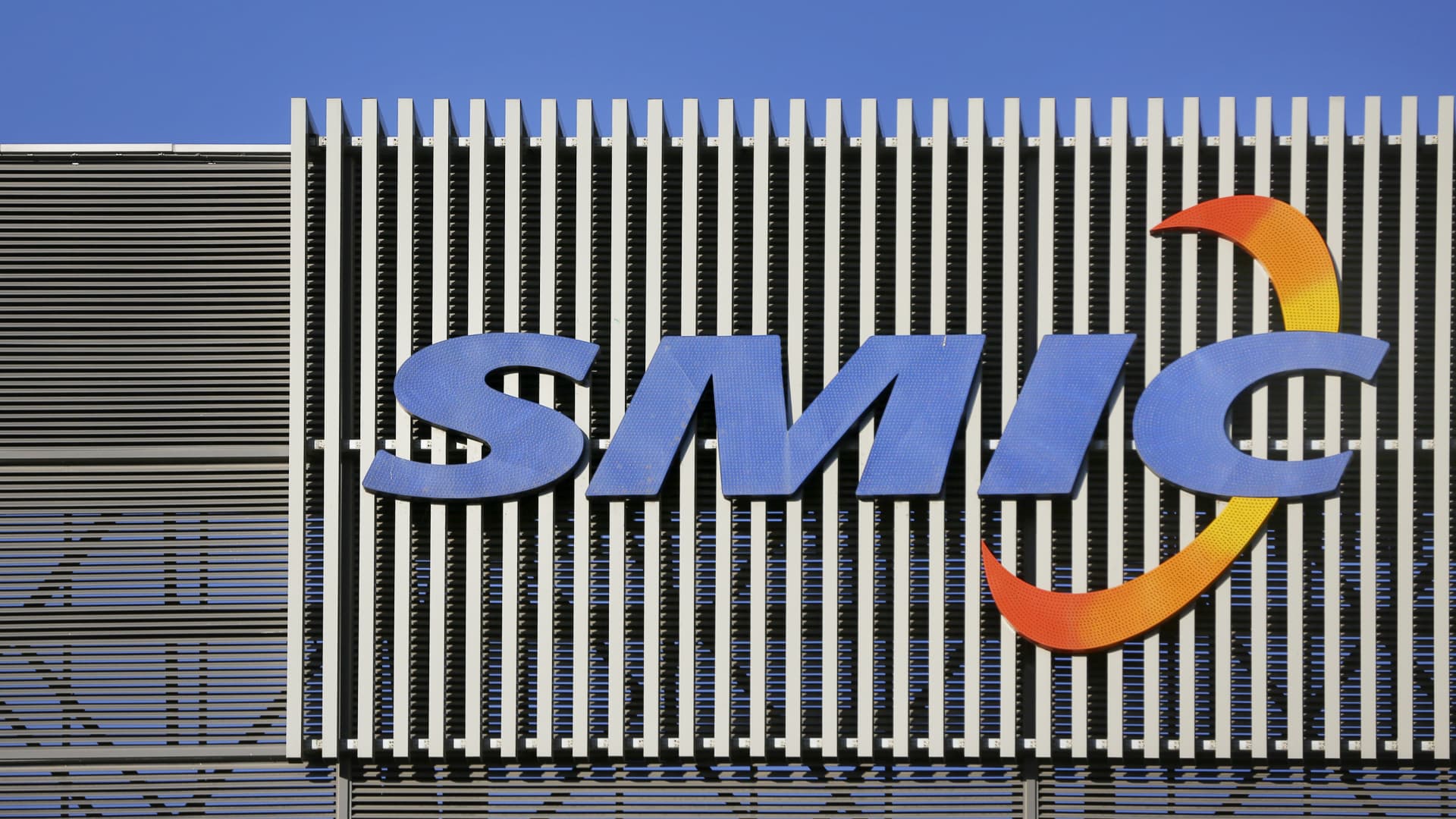Semiconductor Manufacturing International Corporation on Friday warned of intense competition in the chip industry after its first-quarter profit missed expectations.
“Competition in the industry has been increasingly fierce and the pricing for commodity products basically follows the market trends,” SMIC said on Friday during the firm’s earnings call.
“The company fulfills its [long-term view] through constructing quality technology platforms that leap here in mainland China by one to two generations,” said SMIC.
SMIC, China’s biggest contract chip manufacturer, is seen as critical to Beijing’s ambitions of cutting foreign reliance in its domestic semiconductor industry as the U.S. continues to curb China’s tech power. SMIC lags behind Taiwan’s TSMC and South Korea’s Samsung Electronics, according to analysts.
The company’s first-quarter net income plunged 68.9% from a year earlier to $71.79 million, compared with LSEG analysts’ average estimate of $80.49 million.
Gross margin slid to 13.7% in the quarter – the lowest the firm has ever recorded in nearly 12 years – according to LSEG data.
Revenue for the first quarter was $1.75 billion, up 19.7% from a year earlier, as customers stocked up on chips, SMIC said. This handily beat LSEG estimate of $1.69 billion.
“In the first quarter, the IC [integrated circuits] industry was still in the recovery stage and customer inventory gradually improved. Compared to three months ago, we have noticed that our global customers are more willing to build up inventory,” SMIC said on Friday.
Customers are building up inventory to brace for competition and respond to market demand, the firm said, adding that it was unable to fulfil a few rush orders in the first quarter as some production lines were running at near maximum capacity.
SMIC’s chips are found in automobiles, smartphones, computers, IoT technologies and others. More than 80% of its revenue in the first quarter came from customers in China, it said.
Bracing for competition
In a bid to build up competitiveness and increase market share, the firm said it was prioritizing areas such as capacity construction and R&D activities for investments.
“[To] ensure that the company maintain its leading position in fierce market competition and maximize the protection of investor interest … the company plans not to pay dividends for the year 2023,” said SMIC.
“We believe that as long as there’s demand from customers along with our technology and capacity readiness, we can ultimately be bigger, better and stronger despite the fierce competition.”
The company expects second-quarter revenue to rise by 5% to 7% from the first quarter on strong demand, while gross margin could dip further to between 9% and 11%.
“Along with the increase in capacity scale, depreciation is expected to rise quarter by quarter. So the gross margin is expected to decline sequentially,” SMIC said.
The company was placed on a U.S. trade blacklist in 2020 due to which businesses were required to apply for a license before they could sell to SMIC, limiting its ability to acquire certain U.S. technology.
In a blow to U.S. sanctions, an analysis of Chinese tech giant Huawei’s Mate 60 Pro smartphone launched last year revealed that it runs on a 7-nanometer chip made by SMIC. The smartphone also appears to support 5G connectivity despite U.S. attempts to cut Huawei from key technologies including 5G chips.
TSMC and Samsung began mass producing 7-nanometer chips in 2018 and currently manufacture 3-nanometer chips — a smaller size denotes more advanced technology.
